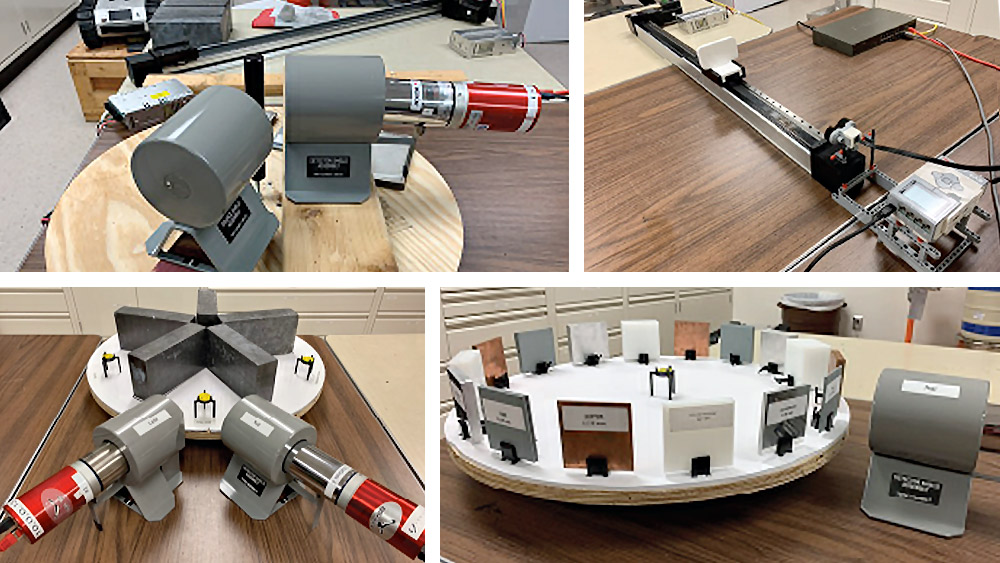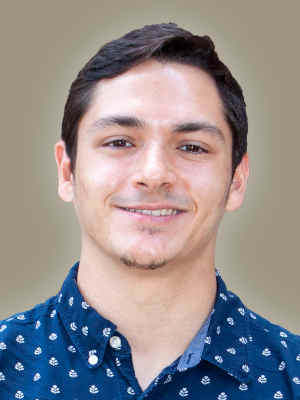
Even before the COVID-19 pandemic hit, providing hands-on experiments in radiation detection for nuclear engineering and health physics students was a challenge. Not all institutions have access to the appropriate equipment and materials for these experiments, and access to sources can be further restricted by certifications and liabilities. The Center for Nuclear Security Science and Policy Initiatives (NSSPI) initially developed a remote detection laboratory to make radiation detection courses feasible for distance education students.
NSSPI graduate Grant Emery designed the original proof-of-concept lab in 2018 under the guidance of Dr. Craig Marianno, NSSPI deputy director and assistant professor of nuclear engineering. Anthony Galindo, a NSSPI master’s student also working with Marianno, has now taken on the task of expanding the capabilities of the remote lab to include even more experiments for remote education.
“Under the current impact of the COVID-19 pandemic, remote education capabilities have proven to be an essential component of an institution’s services,” Galindo said. “I have had the pleasure of providing the service of a remote laboratory to the Texas A&M Department of Nuclear Engineering during this time to continue undergraduate and graduate courses in radiation detection.”

Galindo developed several new experiments for radiation detection and physical security education. These experiments involve the use of industry-standard detectors and software to train students and professionals in nuclear security.
The proof-of-concept remote laboratory included the following radiation detection experiments: gamma source identification, uranium enrichment quantification and Geiger-Mueller dead time determination. Galindo made improvements to these existing experiments and added several new radiation detection experiments, including labs on alpha spectroscopy and attenuation, Compton scattering and attenuation coefficients.
The physical protection experiments he developed explore material reflectivity, object surveillance and remote object measurement using the LEGO MINDSTORMS EV3 Education Core Set (a programmable, science and engineering kit that allows students to expand their robotics skills) and accompanying light, ultrasonic and infrared sensors. Students completing these experiments gain an understanding of how sensors can be used in a facility’s physical protection system.
“This has been especially helpful for providing the same laboratory experience to remote students in the face of in-person class size restrictions,” said Galindo. Texas A&M students in the Nuclear Detection and Isotope Technology Laboratory course used the remote laboratory in spring of 2020 while the university was closed due to COVID-19, and it will be used again for this same class in spring 2021.
The remote laboratory will also soon become a model for similar installations in other parts of the world.
“Outside of Texas A&M, the remote laboratory will be installed at Amity University in India to be used as a regional center for training students and professionals in nuclear security,” Galindo said.
Galindo anticipates graduating with a master’s degree in nuclear engineering from Texas A&M and a graduate certificate in advanced international affairs from the Bush School of Government and Public Service in May 2021. He graduated with a bachelor’s degree in nuclear engineering from Texas A&M in May 2019. As an undergraduate student, Galindo worked with Marianno to develop a multi-deployable radiation detection system for radiological emergency response.
As a NSSPI student, Galindo spent a week at Los Alamos National Laboratory for the 2020 Safeguards Education Experience. The course was designed for the training of new inspectors with the International Atomic Energy Agency (IAEA), making it an extremely rewarding experience. Galindo was a summer safeguards intern at Pacific Northwest National Laboratory (PNNL), where he worked on a scoping study on advanced radiation detection materials for the IAEA. Additionally, he has participated in intensive safeguards and nonproliferation courses at PNNL and Los Alamos National Laboratory. Galindo was also selected to be a science and technology intern for the Defense Intelligence Agency, however, COVID-19 restrictions resulted in the cancellation of the internship program. After graduation, Galindo will work as a staff engineer at IB3 Global Solutions in Knoxville, Tennessee.